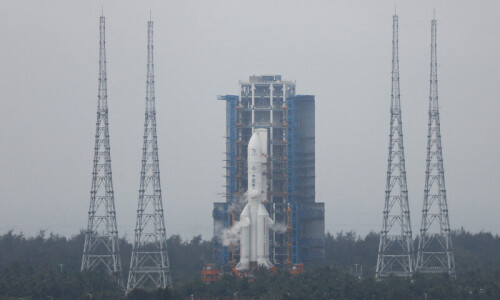“DIGGI, Diggi, Diggi ... ” the auto-rickshaw driver shouted with gusto when he saw us — the Hindustan Times ‘JLF team’ — coming out of the hotel.
“The city is in the fest mode,” remarked a colleague, a literature festival aficionado/veteran, dryly, as we got into our cars to go to the venue of the Jaipur Literature Festival (JLF), the Diggi Palace. The heritage hotel, which was built in the early 18th century, has been the JLF’s home since 2006, the inaugural year of the world’s largest literature festival that attracts visitors from all parts of the world.
For the benefit of those who have not been to the festival, let me give a quick lowdown on the venue, which, I think, is one of the key reasons behind the success of the festival. In fact, it would be wrong to say that the Palace is just a venue: since the inception of the fest, its owners have thoughtfully invested in creating a festival site that retains its heritage look and feel while allowing for all modern amenities.
“This year there are more spaces that have opened up for festival use than ever before, every living creature thought of … even the birds and squirrels are trained from weeks out to look for food on the rooftops rather than down on the ground where visitors may disturb them,” a festival press release said. I don’t know how much of the birds and squirrels story is accurate, but I can say with confidence that I did not find any under my feet!
Coming back to the venue, it is simply sprawling and was decked up in true Rajasthani style. Along with six designated ‘spots’ for hosting the sessions, the venue also doubled up as a ‘pop-up market’ for local micro entrepreneurs and artisans.
“I like coming to JLF because there is so much energy around … there is so much to do. The sessions are fantastic and thought-provoking and there is also a chance to buy artisanal stuff too … it’s a great ecosystem for local makers and artisans,” Rubina Gupta, a teacher, told me. “It’s a fest with a difference.”
Gupta is correct. The beauty of JLF lies in the fact that it has managed to strike a right balance between its intellectual offerings and business and entertainment, and has learnt to cater to a wide variety of audience.
If Canadian poet, novelist and environmental activist Margaret Atwood delivered a witty and lucid lecture (“literature festivals are proliferating because writers are cheap dates”) on the first day of the fest, there was also a session featuring three popular Indian authors who said that they view novel writing as a “project” and their publishers as “venture capitalists” who invest in them for profit.
The other great thing about JLF is the way each day began with a beautiful rendition of 30 minutes of classical music. “These sessions make us ready for the hectic day ahead,” Madhulika Chatterjee, a doctor, said. The day also ends with music, not at the venue but several other locations. “The authors, the discussions, the weather, the music, the food, the wine … everything together makes this an awesome experience,” she added.
Thanks to the intelligent mix of authors, discussion panels, themes and other things, footfalls have been increasing steadily over the years. “JLF is part of the social calendar of many people … they don’t necessarily read but they definitely raise the glamour quotient,” a friend said caustically when she heard that I was attending the fest.
This year saw 245,000 people over the five days — a record number. The festival has seen a doubling of international visitors from 50 different countries, and a 40 per cent increase in the number of students attending the festival. It had over 300 authors and 140 musicians and they participated in 209 sessions across 10 venues, including two new locations — Amer Fort and Hawa Mahal. Most sessions were jam-packed with people making most of the chance to interact with their favourite authors.
It would be difficult — and unfair — to pick out the best sessions because there were just too many of them. If Alexander McCall Smith and Stephen Fry’s sessions were hilarious, author of Being Mortal Atul Gawande’s session spoke on the western and eastern methods of healing and which one is a better bet. While art historian Naman Ahuja and historian Rosie Llewellyn-Jones spoke of the flowering of the arts in 18th century India, historian Ayesha Jalal and others discussed the different facets of the Partition story and how, as Jalal put it, India, Pakistan and Bangladesh need to end finger-pointing and focus on healing the wounds of the divide.
If economist Thomas Piketty got a rousing welcome, so did master photographer Steve McCurry. If Marlon James was media favourite when it came to interviews, three biggest crowd-pullers were probably Gulzar, Kajol and Karan Johar.
Then there were sessions on sports, long-form writing, the creative process of writing and cinema, poetry and vernacular literature. There were sessions on the Indian government’s pet projects and, of course, the economy.
“Writers and readers are joined at the hip,” said Atwood in her inaugural address. They truly are. The 2016 edition of the JLF proved it once again.
—KumKum Dasgupta is associate editor with the Hindustan Times in New Delhi.
Twitter: @kumkumdasgupta
Published in Dawn, January 31st, 2016













































Dear visitor, the comments section is undergoing an overhaul and will return soon.